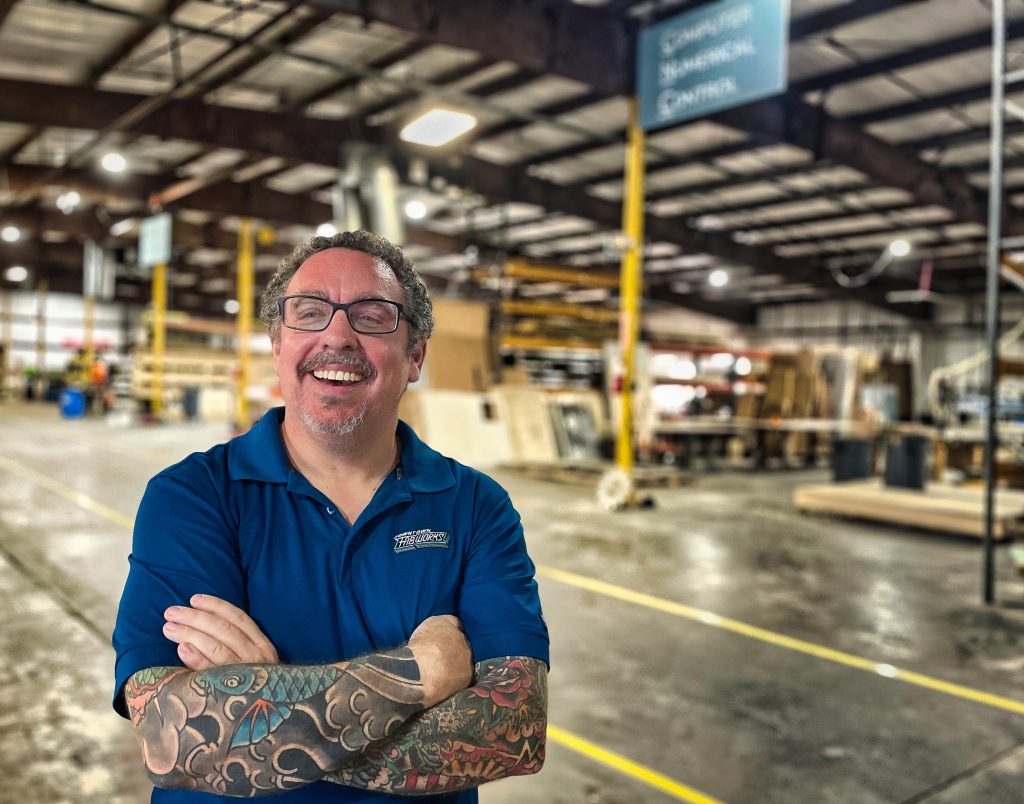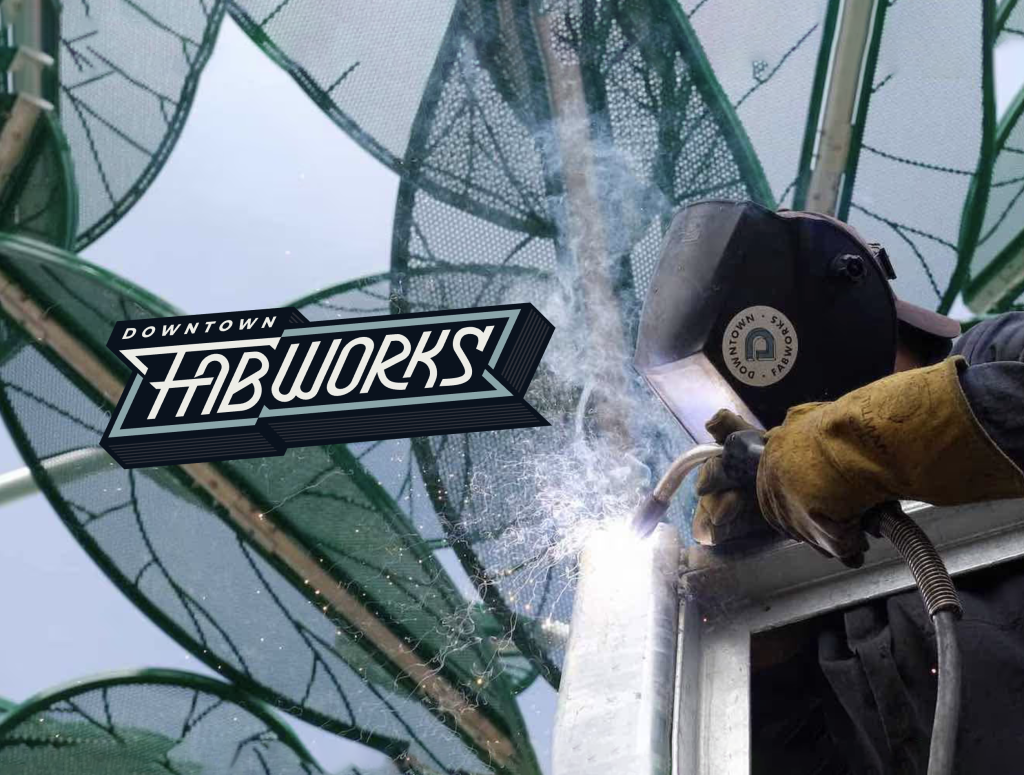Despite its debut at the onset of the pandemic, Downtown FabWorks surpassed its first-year revenue goal by 20%. What’s more, the New Orleans-based fabrication firm has continued to set records, averaging growth of 50% annually and eyeing more than $5 million for 2025 revenue.
Founded by industry veteran Daniel Krall, the company has two divisions:
- FabWorks Architectural, which designs and builds permanent installations, such as exhibits for museums, zoos and aquariums.
- FabWorks Scenic, which focuses on temporary displays. This includes everything from live events and brand activations to trade shows, festivals and public art installations, as well as stage, screen and arena shows.
Reflecting its rapid transition from startup to second stage, Downtown FabWorks is building a national reputation. Today more than 50% of the company’s products are shipped outside the Gulf South, and its portfolio includes projects for the National Gallery of Art in Washington, D.C., the Gilchrease Museum in Tulsa, Oklahoma, and the Indianapolis Motor Speedway Museum.
Downtown FabWorks also stands out for its inclusive culture. Indeed, part of Krall’s founding vision was to assemble a talented team and create a workplace that is accepting of all people. His staff of 40 includes experts in diverse disciplines such as carpentry, metalworking, finishing, audio-visual and lighting integration, prop-making, mountmaking, computer numerical control (CNC) machining, technical design and project management.

In addition to recruiting talent, Krall has also been investing in physical and operating infrastructure. In fall 2024 he bought a 40,000-square-foot warehouse, which expanded the company’s physical footprint by tenfold. Workflow management and robust quality control systems have also been on the acquisition list. “Although requiring a lot of time and money to put these together, it completely pays off in the quality level of our product,” Krall says.
To help prepare his company for future growth, Krall has been participating in programs co-hosted by the Edward Lowe Foundation and Louisiana Economic Development.
He began with a one-year roundtable program, which gave him exposure to other second-stage business owners. Participants hail from a wide variety of backgrounds and industries, but share similar challenges with employees, customers, finance and marketing. “Understanding our commonalities and being part of a group where you can talk through these issues is transformative,” Krall says. “As a business owner, you feel like you’re on an island much of the time. But these programs put you in a room with people who get it, just like you do.”
Krall also views the roundtable as an opportunity to help fellow entrepreneurs, which he finds gratifying. “Even if your business is smaller than the person next to you, we all get lost and hearing a fresh perspective can shed new light on a problem.”
The roundtables provided a gateway for Krall to participate in the foundation’s System for Integrated Growth (SIG), which enables second-stage business leaders to connect with subject-matter experts on very granular topics.
In particular, Krall appreciated working with Jolee Martin, a SIG specialist, on operational efficiencies. “Although we had already developed considerable fidelity with our processes, she gave us great pointers to further refine them,” he says. “For example, how we get the entire team to think much more about their role in financial management and increased efficiency and revenue.”
Martin also introduced Krall to the Working Genius personality assessment. “This was eye-opening and clarified how to make adjustments and hand off workflow so our people can better complement each other,” Krall says.
One of the big benefits of the SIG program is having people from the outside look under the hood of your business, Krall says. “When you’re a business owner, you’re the authority figure — much like the teacher in the Charlie Brown cartoons who students don’t listen to,” he explains. “Having outsiders evaluate your business provides clarity and gives internal staff more drive to get the things that need to be done, get done.”
“I would not be where I am without programs like these,” he adds.
